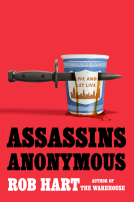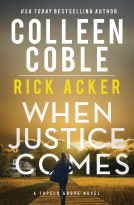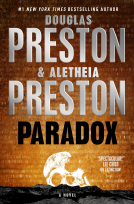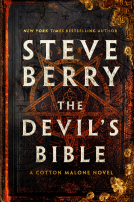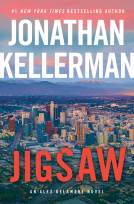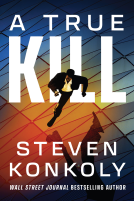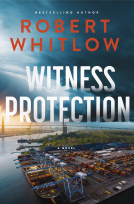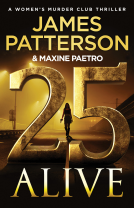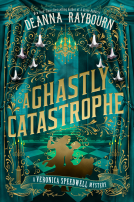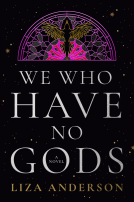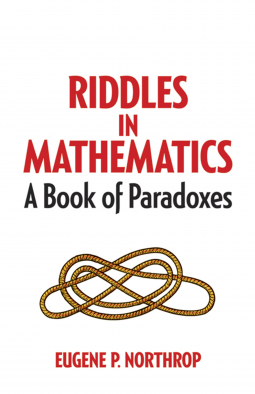
Riddles in Mathematics
A Book of Paradoxes
by Eugene P Northrop
This title was previously available on NetGalley and is now archived.
Send NetGalley books directly to your Kindle or Kindle app
1
To read on a Kindle or Kindle app, please add kindle@netgalley.com as an approved email address to receive files in your Amazon account. Click here for step-by-step instructions.
2
Also find your Kindle email address within your Amazon account, and enter it here.
Pub Date Aug 20 2014 | Archive Date Dec 02 2014
Description
Two fathers and two sons leave town. This reduces the population of the town by three. True? Yes, if the trio consists of a father, son, and grandson. This entertaining collection consists of more than 200 such riddles, drawn from every branch of mathematics. Math enthusiasts of all ages will enjoy sharpening their wits with riddles rooted in areas from arithmetic to calculus, covering a wide range of subjects that includes geometry, trigonometry, algebra, concepts of the infinite, probability, and logic. But only an elementary knowledge of mathematics is needed to find amusement in this imaginative collection, which features complete solutions and more than 100 black-and-white illustrations.
"Mr. Northrop writes well and simply. Every so often he will illuminate his discussion with an amusing example. While reading a discussion of topology, the reviewer learned how to remove his vest from beneath his jacket. It works every time." — The New York Times
Available Editions
| EDITION | Other Format |
| ISBN | 9780486780160 |
| PRICE | $12.95 (USD) |
Average rating from 20 members
Featured Reviews
 Concert K, Reviewer
Concert K, Reviewer
Review will be posted November 14 I don't even know what to say about this book. It is a book of paradoxes - a paradox is "conflict between reality and your feeling of what reality should be like" and has a bunch of brain teasers in it. A lot of them made me crazy trying to figure it out. A lot of them blew my mind. I really don't know how to write about this book - but if you want your mind blown then you have to read it. If you're interested in Math and crazy brain teasers you have to read it. The only notes I wrote about this book was "mind blown". I can't even explain it but these paradoxes definitely made me rethink everything I thought I knew about math!
I received a free e-copy of this book in order to write this review. I was not otherwise compensated.
 Reviewer 105583
Reviewer 105583
Riddles in Mathematics is a wonderful book of riddles and their explanations. If you have ever wondered at certain riddles, and never gotten an explanation, this book is for you. You will be able to amaze your friends with your knowledge once you read this book.
I gave this book 4 stars, only because I did not like the way it was formatted. I expected riddles in the front and answers, or explanations in the back. Unfortunately by the time you start thinking about the answer to the problem, the author is already telling you the answer. I just wish that the whole problem was posed as a question first, and then maybe even in a second paragraph, include the explanation. I felt like I was reading an instructional book, not a book of riddles.
 Educator 108151
Educator 108151
This book is a keeper! I enjoyed reading it and trying to figure out the riddles on my own. I then had fun sharing them with my husband and my daughter. I do not have a great mathematical brain and would have liked the answers to each riddle to be very close at hand. In the beginning Northrop teases us by not giving answers to some riddles he sets up - this almost made me stop reading the book. I'm glad I didn't stop as it was loaded with entertaining riddles that really made me think. It is a great book to read aloud and share.
I read the original edition of this book as a child and found it educational but lacking the spark of similar works by Martin Gardner, Yakov Perelman and Raymond Smullyan, among others. It is by no means dull, it suffers only in comparison to the great mathematical popularizers. It's like a class from a really good mathematics teacher who finds clever and interesting ways to teach the subject, but he's still teaching a subject. The best books of this type engage the reader in an adventure. The literary style is clear and natural, not pedantic, but it has little trace of the style of the more exuberant authors.
Rereading this as an adult, I was somewhat less impressed. There is an excellent introduction that brings the material up to date, but some of the sections are musty nonetheless. The mathematics are timeless, of course, but many applications and illustrations have old-fashioned feels to them. How many people today will follow the discussion of a person removing his vest without taking off his coat? Or have the familiarity with a WWII-era locomotive necessary to enjoy paradoxical parts of its design? Part of it is due to the success of the book, the best treatments have been incorporated into other works and are now familiar. But some of it is that the author was writing to everyday experience of his imagined readers, not to their imaginations.
Despite these issues, this is still an excellent book for developing both mathematical thinking and mathematical knowledge, and having fun along the way. I recommend this book in addition to others.
 Sara L, Reviewer
Sara L, Reviewer
Interesting book about paradoxes, not only the "classic" ones (e.g. logical...) but covering both math and geometry (going trough demonstrations, series and so on).
Maybe more a book to consult than to read, for the content is very specific and quite hard for who does not have a solid background in these sciences.
 Reviewer 76613
Reviewer 76613
A man asks an architect to build a square house with square windows, one on each side, so that each window faces south. How can this be?
Three men go to a hotel and take a suite for which the charge is $30. Each gives the bellhop $10, who takes the cash down to the manager. But the manager realizes that the actual cost of the suite is $25, so he sends the bellhop back with five $1. The bellhop realizes this will be hard to split, so he pockets two of the bills and returns $1 to each man. Now each man payed $9, so the total is $27. The bellhop snuck $2 in his pocket, for a total of $29. But the men originally handed over $30. What happened to the other dollar?
Want to know the answers? These and other puzzles come from Eugene P. Northrup’s book, Riddles in Mathematics.
In the introduction, Daniel Silver discusses the book’s originally proposed titles. Northrop wanted "Two and Two Make Five," but the publishers were horrified by the idea of promoting such sacrilege and instead suggested a title that would never have made it through the gutter minds of today: "Tricks with Figures." Eventually, they settled upon Riddles in Mathematics: A Book of Paradoxes.
To Northrop, a paradox is
“Anything which offhand appears to be true, but is actually false; or which is simply self-contradictory.”
This form of paradox is merely a misunderstanding, a mistake made by someone who is talking too fast and thinking too superficially. To me, a paradox is not simply a mistake in calculation, but something deeper. A perfect example of a “true” mathematical paradox, to my mind, is the probability of choosing any particular value from a distribution over the real numbers, a topic covered briefly by Northrop. If the distribution is real-valued, then the probability of choosing any particular value is 0, but somehow the integral of all these 0’s is 1.* For Northrop, on the other hand, a paradox is merely a fallacy caused by insufficient thought or insight, a student error that becomes obvious in hindsight..
Even so, the “paradoxes” that Northrup points out are certainly omnipresent. For example, one of the mistakes I find most frustrating is the general assumption that events with unknown probability are uniformly distributed. According to Northrup, this type of assumption actually distinguishes two schools of thought: the “cogent reasonists,” who assume that in absence of additional knowledge, two choices are equally likely, and the “insufficient reasonists,” who require some form of evidence before assuming a distribution. I’m definitely one of the latter. For example, say we don’t know whether or not it will rain tomorrow. To me, if you don’t know the probability, you don’t know it-- either do your best to estimate it or just state that you don’t know anything at all. A cogent reasonist would say that in absence of evidence, the chance is 50-50. Northrup goes on to point out the contradictions that can arise from such beliefs.
Riddles In Mathematics is enjoyable enough, although it’s a little hard to characterize. It starts out with word problems and brain teasers, where confusion is cultivated by simple phrasing. It then continues on to simple arithmetic, geometry, and algebraic fallacies. I must admit, Northrop demonstrates an impressive variety of ways in which people can be tripped up by division by zero. Despite the entertaining writing, all of these “paradoxes” will be painfully obvious to anyone with a basic mathematical background. From that point forward, however, things start getting technical, delving deep into complex geometric fallacies, discussions of infinity, problems with probability, lessons in logic, and conundrums in calculus. Personally, I’ve never been fond of geometry and have little interest in topology, but I thoroughly enjoyed the sections dealing with infinity and fun with contradictions in convergence. Northrup also writes an entertaining introduction to the subject of martingales. Considering the book is over half a century old, it has aged quite gracefully. Overall, I’d concur that while not everything in the book will be interested in each section, Riddles in Mathematics does indeed have something for everyone.
~3.5
Excerpted from my review on BookLikes: http://pagefault.booklikes.com/post/1035733/thou-shalt-not-divide-by-zero
Posted on GoodReads: https://www.goodreads.com/review/show/1094842771
 Michelle M, Librarian
Michelle M, Librarian
Nonfiction 14 to Adult This new edition of a mathematical classic features an introduction by Daniel Silver, who provides both a brief biography of the author and an exploration of the book’s longevity and continued relevance fully 70 years after its original publication. As one who works in post-secondary science studies, I particularly appreciated this observation from Silver as he explained the book’s wartime origins: “A powerful nation can build battleships and planes in a hurry, but it cannot easily correct for decades of classroom neglect” (p. 7). Northrop presents brain teasers and puzzles – the classic example of two fathers and two sons, but only three men – and then proceeds to explain them, deconstructing them so you can understand why you likely went astray. He follows up with similar puzzles so you can put your new skills to the test, rather like a math textbook. I do enjoy logic problems, and found this was a high-test version of the drugstore magazines that intrigued me as a youth. In fact, I wish Northrop had put the solutions at the end as I found he revealed the answers too soon. The book starts with fairly simple puzzles, working through geometry (optical illusions) and building on algebraic skills as we go along. I fully admit that I didn’t finish; the puzzles were beyond my ability by the half-way mark, though had I spent more time fully working out the earlier problems I think I would have been more successful at later ones. Several puzzles entertained me while others drove me crazy trying to figure them out, so if you don’t mind spending a lot of time thinking through the puzzles, you will likely enjoy this new edition of a math geek’s classic. Other than the introduction, the book is exactly as it was first published, including illustrations to help you wrap your head around some of the riddles. My thanks to NetGalley for an e-galley of this title in exchange for my honest review.
More discussion and reviews of this title: http://www.goodreads.com/book/show/22654558
